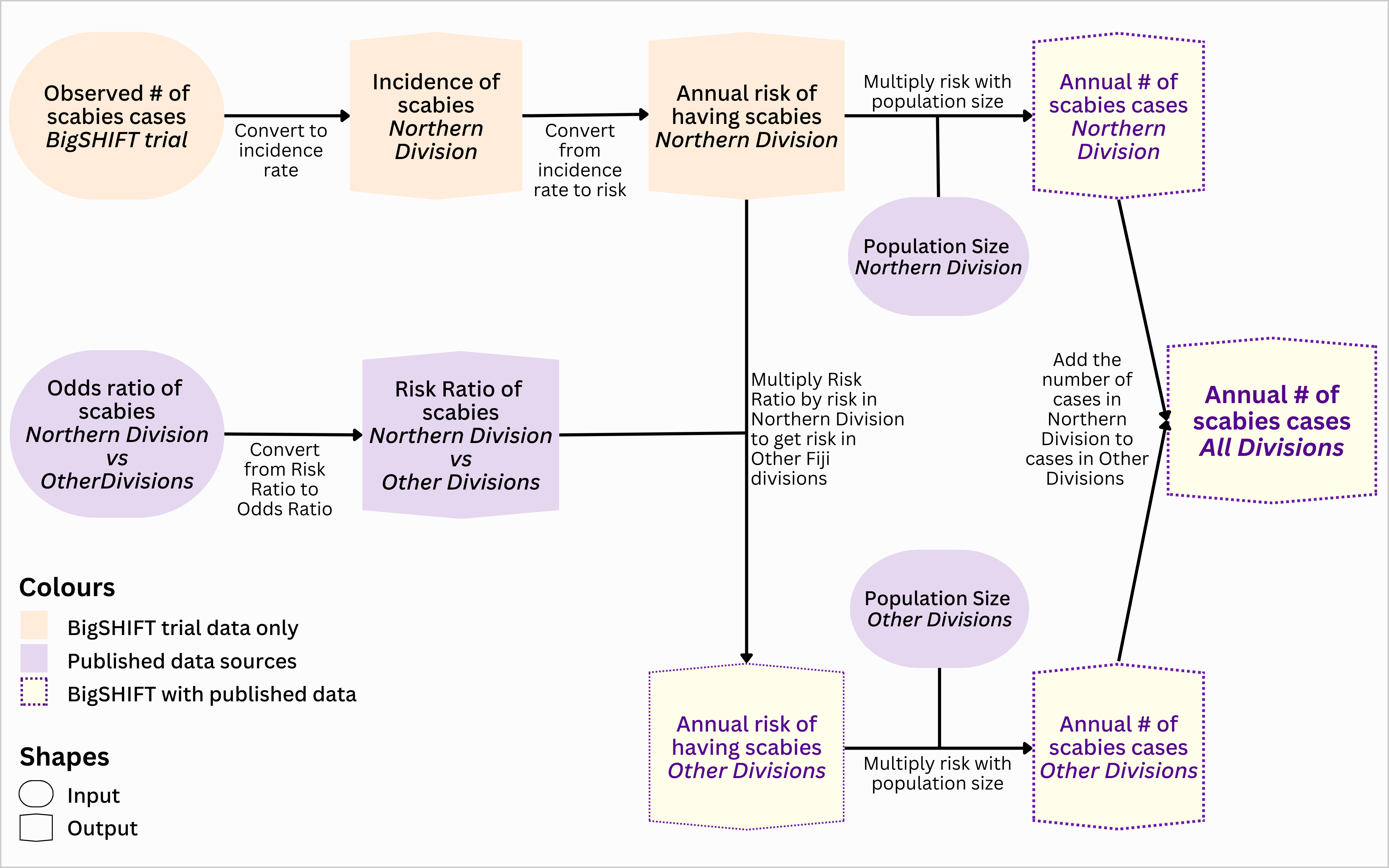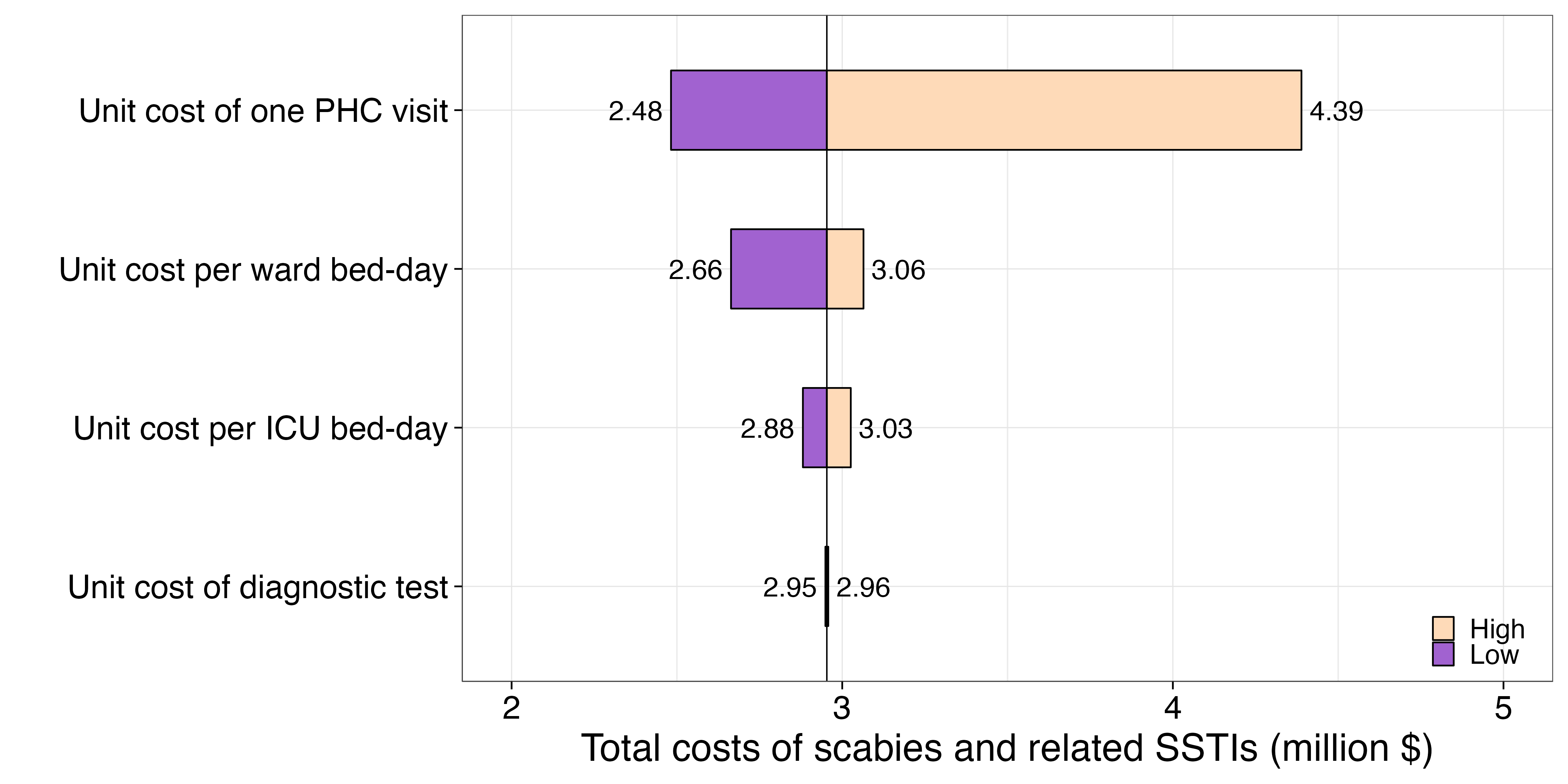Abstract
Background: Scabies and related bacterial skin and soft tissue infections (SSTIs) are highly prevalent in many tropical, low- and middle-income settings. These skin conditions contribute to higher healthcare costs and burdens on healthcare systems. The Big Skin Health Intervention Fiji Trial (“Big SHIFT”) carried out surveillance for scabies and related SSTIs from July 2018 to June 2019 in the Northern Division of Fiji, an area with high prevalence of scabies, prior to a division-wide ivermectin-based mass drug administration campaign. .
Methods: Using data from Big SHIFT, we sought to estimate the annual direct healthcare costs of scabies and related SSTIs for the Northern Division and extrapolate these costs to the national level. We also assessed non-scabies-related SSTIs. We categorized SSTIs as being potentially scabies-related or not scabies related, based on a previous study. The analysis used a health system perspective, with the main resource use categories of primary healthcare (PHC) visits, bed days, medications, and diagnostics. We extrapolated the total annual number of cases and direct healthcare costs for all divisions in Fiji based upon previous scabies and impetigo prevalence data across all divisions.
Results: The average cost per PHC presentation for scabies was US$17.7, and for scabies-related SSTI was $18.3. The average cost per hospital admission for scabies-related SSTI case was $439. The estimated annual healthcare costs of scabies and related SSTIs in Fiji was US$3.0 million, with cost per capita of $3.3.
Conclusions: Scabies and related SSTIs lead to a heavy economic burden in Fiji and prevention would reduce these healthcare costs.
Figures

